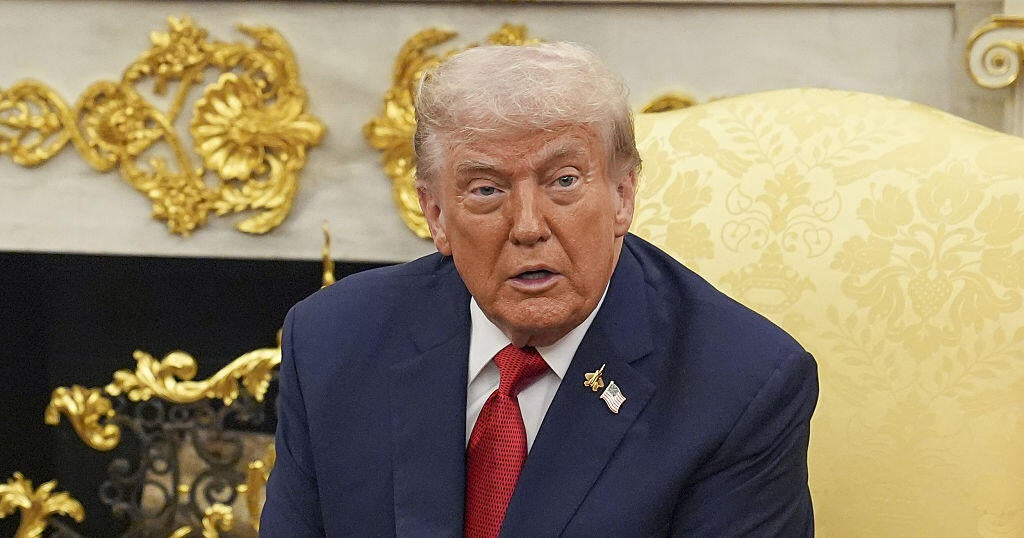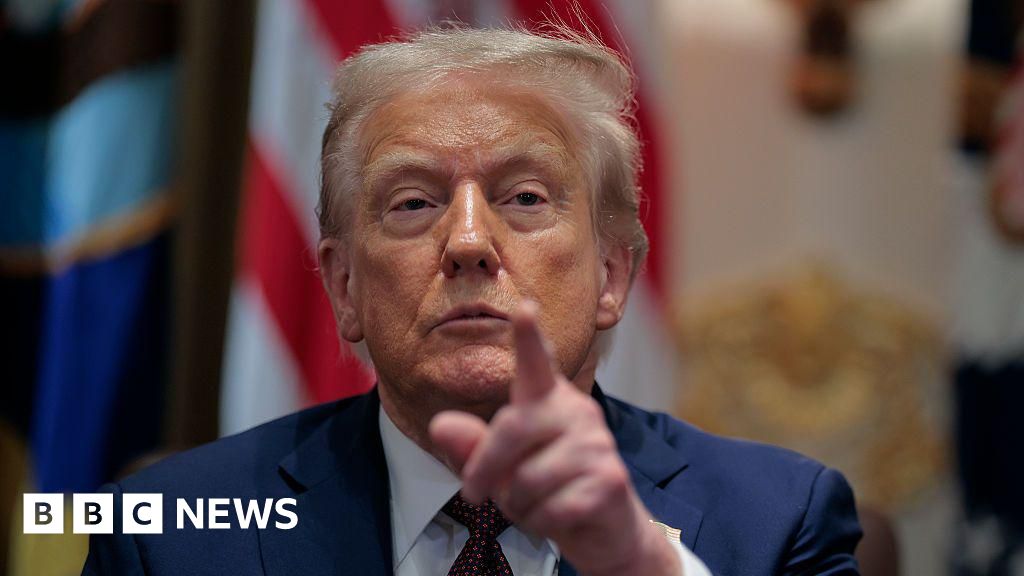Trump Directs Pentagon to Guarantee Military Pay Amid Shutdown

Trump's Directive to Ensure Military Pay
President Donald Trump has ordered the Pentagon to use "all available funds" to guarantee that active-duty U.S. troops receive their paychecks on October 15, despite the ongoing government shutdown. This directive aims to prevent service members from missing their salaries as the shutdown, now in its 11th day, threatens to delay payments for approximately 1.3 million active-duty personnel.
Funding and Legal Considerations
The Pentagon plans to use funds from sources such as the 2025 reconciliation act and possibly divert research and development (R&D) budgets to cover military payroll. While this move is legally feasible according to the Congressional Budget Office, it raises concerns regarding the Antideficiency Act, which restricts spending without congressional appropriations. Trump blamed Democrats for the shutdown and emphasized his authority as commander in chief in directing Defense Secretary Pete Hegseth to secure the funds.
Impact on Federal Workers and Shutdown Outlook
Unlike military personnel, hundreds of thousands of federal civilian employees remain furloughed without guaranteed pay, with layoffs already underway. The president’s action removes a key pressure point for Congress, potentially extending the shutdown into a third week or longer, as no similar measures have been announced for civilian workers affected by the funding lapse.
About the People Mentioned
Donald Trump
Donald John Trump, born June 14, 1946, in Queens, New York, is an American businessman, media personality, and politician. He graduated from the University of Pennsylvania’s Wharton School in 1968 with a degree in economics. In 1971, he took over his family’s real estate business, renaming it the Trump Organization, through which he expanded into building and managing skyscrapers, hotels, casinos, and golf courses. Trump gained widespread fame as the host of the reality TV show *The Apprentice* from 2004 to 2015, which helped establish his public persona as a successful entrepreneur. Trump entered politics as a Republican and was elected the 45th president of the United States, serving from 2017 to 2021. His presidency was marked by significant policy actions including tax cuts, deregulation, the appointment of three Supreme Court justices, renegotiation of trade agreements (notably replacing NAFTA with the USMCA), and a focus on immigration control including border wall expansion. He withdrew the U.S. from international agreements such as the Paris Climate Accord and the Iran nuclear deal, and engaged in a trade war with China. His administration’s response to the COVID-19 pandemic was criticized for downplaying the virus’s severity. Trump was impeached twice by the House of Representatives—first in 2019 for abuse of power and obstruction, and again in 2021 for incitement of insurrection—but was acquitted by the Senate both times. After losing the 2020 election to Joe Biden, Trump challenged the results, culminating in the January 6, 2021, Capitol riot. He remains a central figure in American politics, having won the 2024 presidential election and returned as the 47th president in 2025, continuing to promote policies aimed at economic growth, border security, and military strength[1][2][3][4].
Pete Hegseth
Pete Hegseth is an American government official, author, and former television personality. Born on June 6, 1980, he graduated from Princeton University in 2003 and later earned a master's degree in Public Policy from Harvard University's John F. Kennedy School of Government in 2013[1][4]. Hegseth was commissioned as an infantry officer in the Minnesota Army National Guard, serving in Guantanamo Bay, Iraq, and Afghanistan. He received several military awards, including two Bronze Star Medals and the Combat Infantryman Badge[3][4]. After his military service, Hegseth worked with organizations such as Vets for Freedom and Concerned Veterans for America, where he served as executive director and CEO, respectively[1][7]. He became a contributor to Fox News in 2014 and later co-hosted *Fox & Friends Weekend* from 2017 to 2024[1][5]. Hegseth has written several books, including *American Crusade* and *The War on Warriors*, the latter being a New York Times bestseller[3][5]. In November 2024, Hegseth was nominated by President-elect Donald Trump to be the Secretary of Defense. He faced a contentious confirmation process, with allegations of misconduct and financial issues. Despite these challenges, Hegseth was confirmed by the Senate on January 25, 2025, with Vice President JD Vance casting a tie-breaking vote[1][2]. As Secretary of Defense, Hegseth has been involved in several significant events, including ordering budget cuts and firing top military officers to "focus our military on its core mission"[2]. He has also been at the center of controversy regarding the use of the Signal messaging app for sharing sensitive information[2]. In September 2025, Hegseth addressed senior military leaders, emphasizing the need for tighter fitness standards and opposition to certain policies he termed "woke garbage"[1].
About the Organizations Mentioned
Pentagon
The **Pentagon** is the headquarters of the United States Department of Defense (DoD), serving as the central command center for the nation's military operations and strategic defense planning. Situated in Arlington County, Virginia, it houses the leadership and staff of the Army, Navy, Marine Corps, Air Force, Space Force, and associated defense agencies and commands[1]. Originally constructed during World War II as a temporary War Department building, the Pentagon evolved into the permanent nerve center for U.S. military coordination following the 1947 National Security Act, which merged the War and Navy Departments and added the Air Force, establishing the modern DoD[2]. The Pentagon oversees America’s global military posture, playing a crucial role during the Cold War and continuing to adapt to current geopolitical challenges. Its organizational complexity includes civilian oversight through the service secretaries and integration with multinational commands such as NATO and NORAD[1]. The Pentagon is also notable for its vast infrastructure, which underwent a comprehensive renovation completed in the early 2000s to maintain its operational capacity and security[2]. In recent years, the Pentagon has shifted strategic focus to homeland defense and the Western Hemisphere, aligning with contemporary U.S. national security priorities such as border protection and countering adversaries like China[3]. Technologically, it actively invests in emerging industries critical to defense, including space technologies, microelectronics, biochemicals, and software modernization. The Office of Strategic Capital, established to channel private sector investment into defense technologies, exemplifies this focus on innovation and maintaining U.S. technological superiority[4][6]. Efforts such as the Pentagon’s software modernization implementation plan emphasize cloud adoption and agile software development to enhance military IT capabilities[6]. Additionally, political dynamics impact Pentagon leadership and policy directions, as seen in initiatives like Project 2025, which aims to influence personnel and strategic priorities aligned with conservative policy goals[5]. Overall, the Pentagon remains a pivotal institution at the intersection of defense, technology
Congressional Budget Office
The **Congressional Budget Office (CBO)** is a nonpartisan federal agency established in 1974 by the Congressional Budget Act to support Congress in budget and economic policy matters. Its core mission is to provide objective, impartial, and professional economic and budgetary analysis to help lawmakers make informed decisions about fiscal policy. The CBO serves as an independent alternative to the executive branch’s Office of Management and Budget, ensuring Congress has its own reliable data and projections[1][2][3][7]. CBO’s primary responsibilities include producing formal cost estimates for nearly every bill approved by congressional committees and publishing key reports such as the annual *Budget and Economic Outlook*. This flagship report offers baseline budgetary and economic projections over a 10-year horizon, assuming current laws remain unchanged. The agency also conducts analyses of the economic impacts of proposed federal spending and tax policies, aiding Congress in understanding long-term fiscal effects and budget deficits[1][3][5]. Since its inception, the CBO has become a critical institution in the U.S. budget process, recognized for its rigorous methodology and nonpartisan stance. It employs experts in economics and public policy who draw on a wide range of data, forecasting models, and external expert advice to maintain accuracy and credibility. The agency has adapted to the digital age by enhancing its publication and digital media divisions to better communicate its findings to both legislators and the public[3]. Currently, the CBO continues to provide vital analysis amid complex economic conditions, such as assessing the federal deficit, tax revenue changes, and spending trends. It remains strictly neutral, never making policy recommendations, but offering transparent methodologies that underpin its analyses[5][7]. For stakeholders in business and technology news, the CBO’s work is essential for understanding how fiscal decisions may influence economic growth, innovation funding, and federal investment priorities.
















